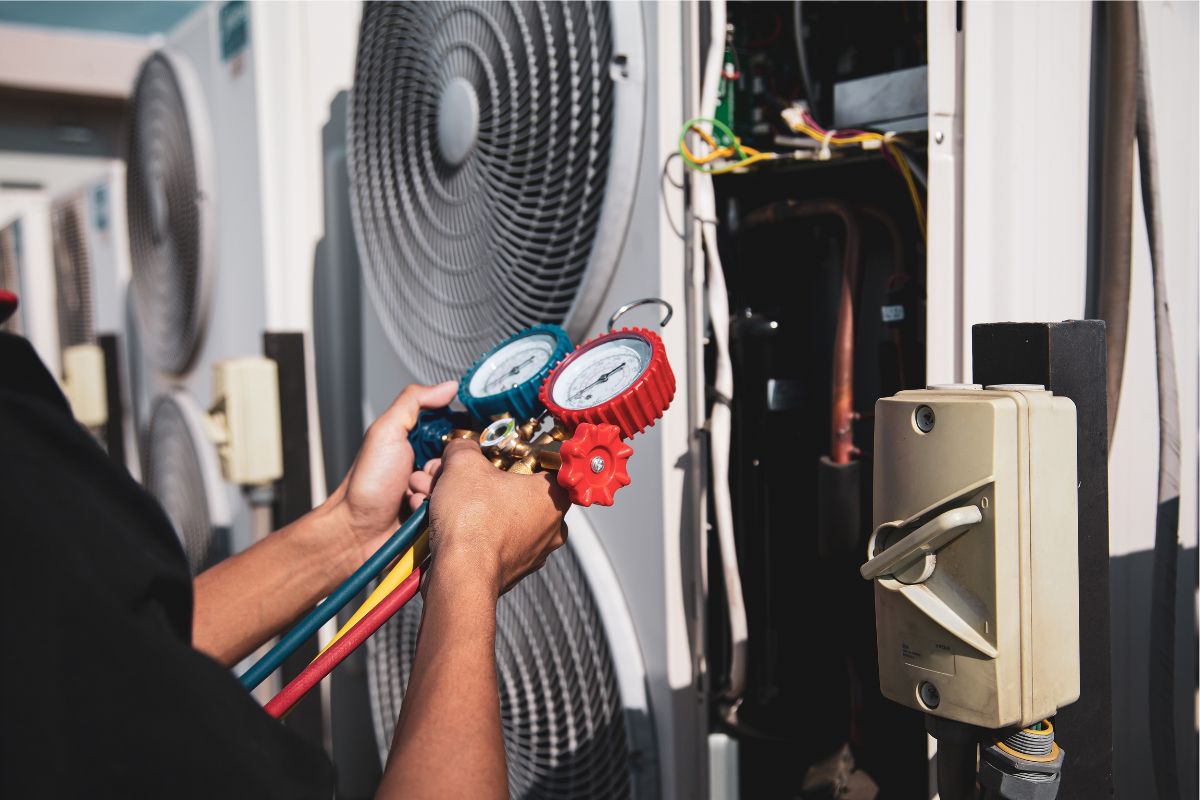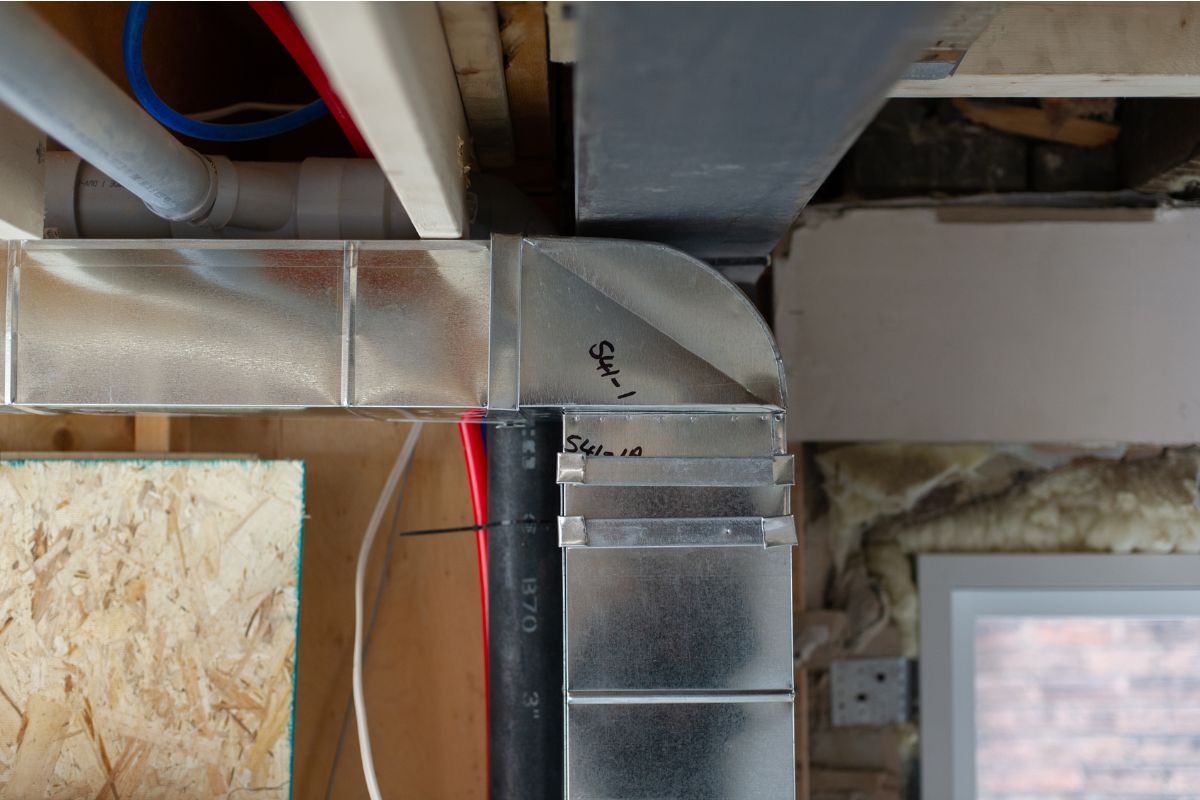Commercial spaces are natural breeding grounds for airborne illnesses. In environments where people come together, the flow of air can become a silent highway for bacteria, viruses, and other pathogens — something we’ve all come to learn firsthand when the COVID-19 pandemic struck. In this blog, we’ll explore why airborne illness prevention is a critical concern for commercial HVAC professionals and the general public. We’ll also unpack strategies to bolster your defenses against these unseen health threats.
Understanding Airborne Illnesses in Commercial Settings

To combat airborne illnesses, it’s imperative to be appropriately equipped. In the realm of commercial HVAC, the threats are numerous and diverse — from common cold viruses to more insidious bacteria that can cause Legionnaires’ disease. These pathogens are not just isolated to the vicinity of the unwell individual; they also ride on air currents, making HVAC systems both producers and curators of illness.
Categorization and Transmission
Airborne illnesses in commercial spaces can be classified into two categories: those that spread through droplets and those that are truly airborne. The former, which includes illnesses like the flu and tuberculosis, can spread through sneezing, coughing, or even speaking. The latter, such as Legionnaires Disease, can linger in the air for significant periods, leading to the risk of wider-scale outbreaks.
How HVAC Plays a Role in Exacerbating/Mitigating Airborne Illnesses
The role of HVAC systems in the transmission of airborne illnesses cannot be overstated. HVAC ducts can become contaminated, and if not properly maintained, these systems can exacerbate the spread of illness. Effective and routine maintenance is key, as is the strategic placement of air filters and UV lights that can neutralize pathogens as they pass through the system.
Air Quality Management in Commercial HVAC
The HVAC industry plays a pivotal role in defending against airborne illnesses by managing air quality. It’s a fine balance between comfort and safety, and achieving it requires a multi-faceted approach.
System Maintenance
Regular maintenance of HVAC systems is non-negotiable. This includes:
- Ensuring proper ventilation
- Regularly changing filters
- Cleaning ducts to prevent the buildup of harmful particles
- Conducting preventative maintenance with licensed professionals
Indoor Air Quality Enhancement
HVAC professionals can employ several tactics to enhance indoor air quality, such as the installation of high-efficiency particulate air (HEPA) filters and the use of ventilation strategies that promote the dilution of contaminants.
High-efficiency particulate air (HEPA) filters are a standard feature in medical-grade HVAC systems. Their fine mesh catches particles down to 0.3 microns in size, which includes viruses and bacteria. Some systems even integrate UVC light into the air handler to neutralize airborne pathogens, offering a dual-layer defense against infection.
Specific Airborne Illnesses and Combat Strategies
Certain airborne illnesses are more likely to rear their heads in commercial spaces. We’ll look at a few and how HVAC technicians can tailor their approach to combat them.
Flu
Seasonal flu is a common, yet potentially deadly, illness that impacts employee productivity and customer health. The installation of carbon dioxide sensors for improved ventilation. frequent duct cleaning, and airing out rooms with fresh air can help reduce its spread.
Legionnaires’ Disease
Often associated with cooling towers, Legionnaires’ disease can also find a home in the ducts of HVAC systems. Regular water treatments and maintaining system cleanliness are crucial in preventing outbreaks.
How Legionella Forms
Legionella bacteria thrives in water systems that are not adequately maintained. The bacteria find ideal breeding grounds in stagnant water, such as that found in certain parts of HVAC systems, including cooling towers, evaporative condensers, and hot water tanks.
When the systems are not regularly cleaned or disinfected, biofilm can develop on surfaces in contact with water, providing protection and nutrients for legionella to grow. Once legionella has multiplied to sufficient numbers, it can spread through the air via mist or vapor, potentially being inhaled by individuals within the building. Regular system maintenance and water treatment are critical to prevent the formation and proliferation of legionella bacteria.
The Future of Air Quality Management
The HVAC industry is at a point of evolution, with emerging technologies and trends promising more robust air quality management solutions.
Smart HVAC Systems
Intelligent HVAC systems that can recognize and respond to changes in air quality are on the horizon. These systems will be capable of making real-time adjustments to minimize the spread of airborne illnesses.
Moreover, HVAC automation can help you save money in the long run, both in terms of energy costs and maintenance. Fewer moving parts mean less output on your system’s parts, which means less energy is wasted and saved on your electric bill.
In addition to this, HVAC automation cuts costs when it comes to labor. If your system is running on an automated schedule, there’s less opportunity for your system parts to get overworked and fatigued. This means you have less of a chance of needing maintenance done to your system.
This, however, doesn’t mean the need for maintenance is completely eliminated. Dust, dirt, debris, and standing water can and still will accumulate in your HVAC system — so it’s important to be extra vigilant about such.
Air Disinfection Technologies
From bi-polar ionization to photocatalytic oxidation, novel technologies are being developed that can actively seek out and neutralize pathogens in the air, providing a new layer of defense against airborne illnesses. Ultraviolet Germicidal Irradiation (UVGI) can also significantly reduce the spread of airborne diseases and fortify the environment against contagious elements.
Tackling Airborne Illnesses with Air Ideal
The battle against airborne illnesses in commercial spaces is an ongoing one, with the safety of employees and the public at stake. By understanding the nature of these illnesses and arming themselves with the latest air quality management tools and strategies, the HVAC industry can be a powerful force for health and well-being.
Don’t leave air quality to chance. At Air Ideal, we service every inch of your HVAC system and ensure your commercial building is operating under the safest conditions. From preventative maintenance to specialized treatments, Air Ideal has the solution for your commercial HVAC system. To learn how we can help, please visit our website and get in contact with us now.



